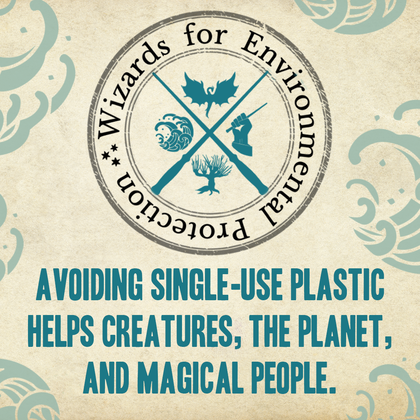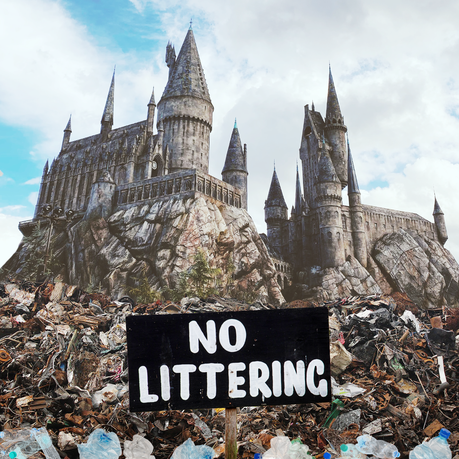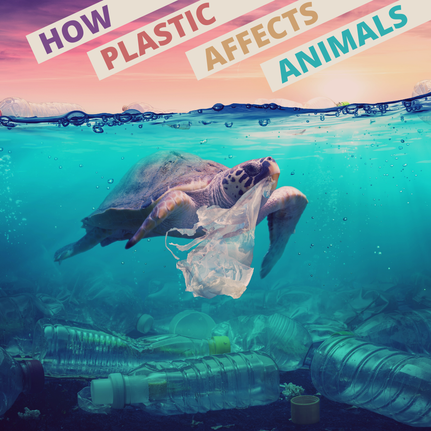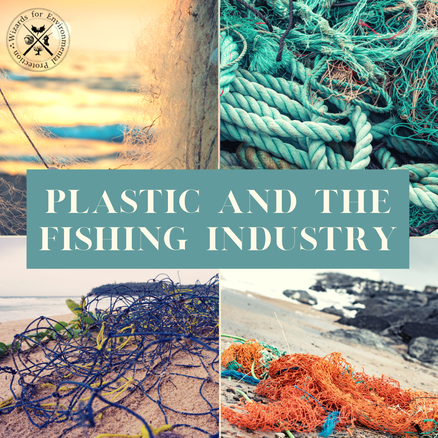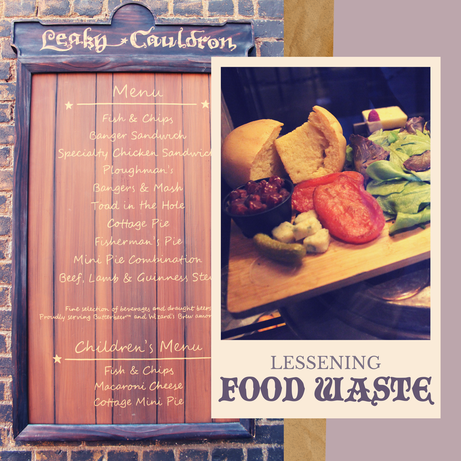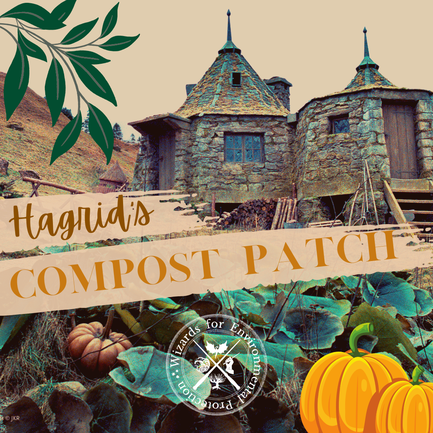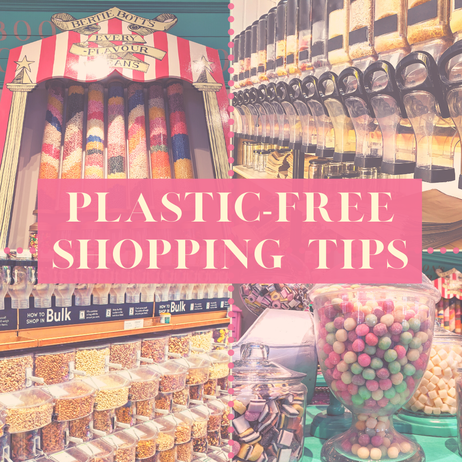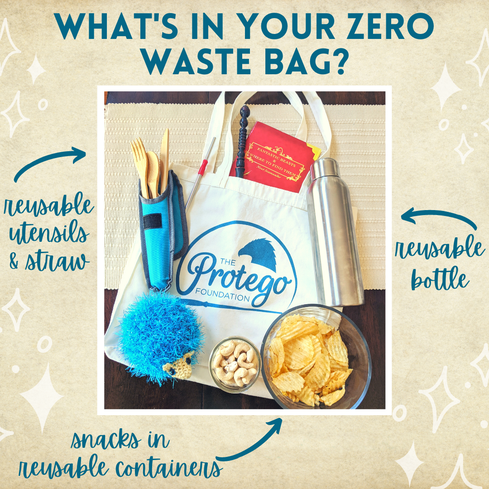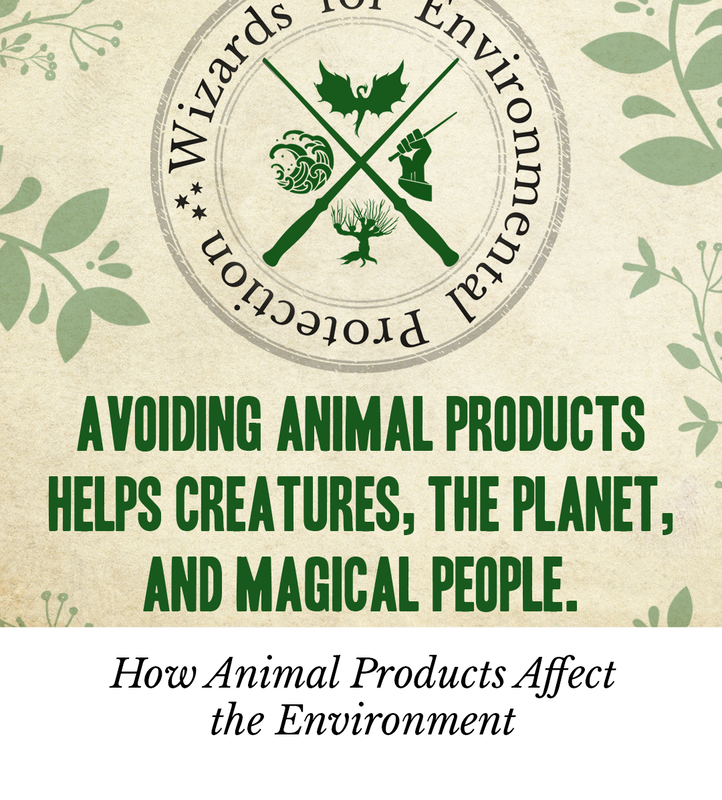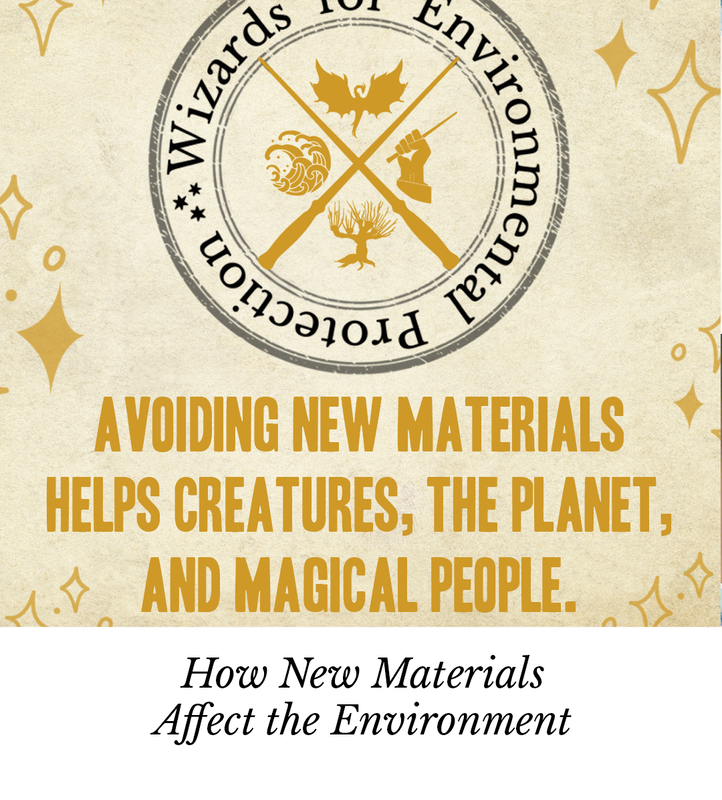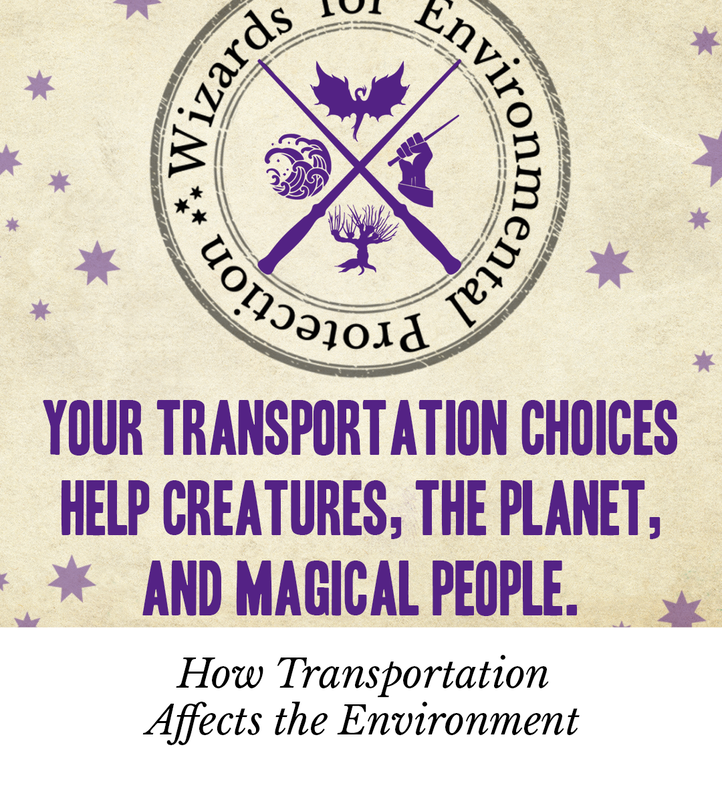We shared a Hogwarts Library-worth of information about issues like how much plastic humans use, how plastic affects animals, how to reduce food waste, and tips for living a more zero-waste lifestyle. Here’s a recap of what we covered during this exciting two-week period and some bonus content we didn’t include in our social posts!
Many marine animals accidentally consume or become tangled in plastic waste. They are suffering and dying because of the negligence of humans. Since 2017, 4Ocean has recovered 14 million pounds of plastic and other trash from the oceans. However, it represents less than two years worth of ocean plastic pollution. According to Plastic Oceans, every year, 10 million tons of plastic end up in our oceans. While some non-profit organizations, like The Ocean Cleanup, are aimed at cleaning our oceans, the nauseating truth is we will never be able to remove every single piece of plastic from our environment. Imagine how different the second task of the Triwizard Tournament would have been if the champions had to swim through a lake full of plastic! What can we do to prevent plastic pollution?
The Center for Biological Diversity reports that in the North Pacific, fish ingest 12,000 to 24,000 tons of plastic each year. So what can we do to protect grindylows, Plimpies, Murtlaps and other magical and non-magical marine creatures?
Abandoned gear harms over 100,000 marine species per year. Greenpeace reported that fishing nets make up 86% of the large plastics in the Great Pacific Garbage Patch and 85% of the plastic pollution on seamounts, ocean ridges, and the seafloor. So while it's very important to reduce and eliminate single-use plastics, the most important step we can take is to refuse to support such a destructive industry. How do we do this? Choose plant-based fish and seafood alternatives. Say no to seafood and no to the plastic cutlery that comes with it! Be an ocean hero!
Wasted food means wasted resources at all stages of the food system, be it energy, water, land use, labor, or capital. According to a 2013 report from World Resources Institute, food loss and waste contributes to approximately 170 trillion liters of water consumption per year, or 24% of all water used for agriculture. Like plastic, food waste also goes to landfills and finds its way into our oceans. To ensure longer shelf life, our food is often treated with various additives, such as preservatives, antibiotics, pesticides, insecticides, and hormones. When marine mammals consume our food waste, they also consume these harmful chemicals. Power Knot warns that the nutrients from food discarded into our oceans can create a biological hazard. The high levels of nutrients (like nitrogen or phosphorus) in water lead to excessive growth of algae. This phenomenon is called eutrophication and it affects our entire ecosystem. So what can we do to reduce food waste?
Several types of composting systems exist which can suit different lifestyles. Composting can be done indoors or outdoors in private homes or shared areas, such as community gardens. If you'd rather not do it yourself, check with your local waste department to see if you can sign up for compost collection. There are also some locations that will allow you to drop off your compost. Some cafes and restaurants will also welcome your waste! Have a look at Share Waste, which references where people can receive or donate food scraps all over the world. Other composting community maps can be found online, such as The Institute for Local Self-Reliance’s for the USA. If none are available near you, how about starting a community compost for your building, workplace, or neighborhood? The material you get from composting is a valuable and nutrient-rich food that can be used as fertilizer for home plants or gardens. If you have too much of it, don’t hesitate to offer it to your family, friends or neighbors. What can be composted at home?
There are many eco-friendly shops online who sell or repurpose a great number of the things listed above. For a couple of places to start, check out sites like EarthHero, TheEcoShop, Seed&Sprout, and Flora&Fauna. Make sure to shop locally when you can! With less plastic waste, the world will be a much happier place for the animals, our health, and the future of our planet. Be inspired by the changes you can make day-to-day! Happy shopping!
These simple swaps can make a big difference down the line if we all do them together! And remember, we don't need a few people doing zero waste perfectly. We need everyone doing it imperfectly. 8. Helpful Resources Here are some of our favorite resources for living more sustainably! Books:
Documentaries: Nonprofit Organizations: Don’t forget to join our Discord server to chat with other animal lovers and tell us how you are living sustainably! Written by Assya Ahouandjinou, Ruby Shofield, and Victoria Tomis Accio more articles:
1 Comment
|
The Protego Foundation's work is made possible, in part, thanks to Tylor Starr.
The Protego Foundation and its activities are not licensed by, sponsored by or associated with Warner Bros., J.K. Rowling, or their affiliates. 'Wizarding World,' 'Harry Potter,' ‘Fantastic Beasts' and all related names, characters and indicia are trademarks of and © Warner Bros. - Harry Potter publishing rights © J.K. Rowling.
FEIN 83-3531129
The Protego Foundation and its activities are not licensed by, sponsored by or associated with Warner Bros., J.K. Rowling, or their affiliates. 'Wizarding World,' 'Harry Potter,' ‘Fantastic Beasts' and all related names, characters and indicia are trademarks of and © Warner Bros. - Harry Potter publishing rights © J.K. Rowling.
FEIN 83-3531129

